
OR

Political movement has failed to address the rampant social discrimination in Madhesh
In August last year, a Dalit family was barred from using water well at Nayanpur village in Dhangadhi municipality of Siraha district. The so-called upper caste people had stopped the Dom’s family from fetching water from the well on account of their “untouchable” status.
The incident caught the national attention.
This incident had taken place when celebrated Nepali film star Rajesh Hamal was there to attend a program. The matter was taken to the police soon. A team led by Deputy Superintendent of Police (DSP) Uma Chaturbedi himself visited the community, and allowed the family to use the community well in front of other villagers. Even a police team was stationed in the area until the situation normalized. Thereafter the Dalit family could use the water from this well. But the members of so-called upper castes stopped using the well where Dalits went.
Nayanpur is a mixed settlement of Yadav, Mahato, Musahar, Dom, Bahun and Chhetri castes. There was a separate well for the Dom community which had dried up forcing the Doms to use the well that was used by communities other than theirs. This triggered a serious debate in the village as to whether Doms should be allowed to use that particular well. All other communities but Dom had access to water from public and private wells. Desperate, when the family of Pulakit Mallik Dom dared to defy high caste people, the whole community stood against them.
Dom is considered an “untouchable” community in Madhesh. Other Dalit communities have also fallen victims of untouchability. But Dom is perhaps the most affected community in Madhesh. They still face the worst form of discrimination.
This incident had happened at a time when Madhesh-based political parties were agitating in Tarai protesting against certain provisions of the new constitution.
Some eleven months after this incident, the matter has come to the surface again with the launching of apology campaign for social reform in Madhesh by some Madheshi intellectuals like journalist Prashant Jha, political analyst Tula Narayan Sah, and advocate Dipendra Jha.
Under the same campaign, Tula Narayan Shah visited a Dom family of Dev Narayan Marik in a remote village of Saptari and extended apologies to them. Shah’s move was a huge surprise for the non-Dalit villagers. He wrote in his Facebook page that Dev Narayan’s family was speechless when he said “sorry” and asked for tea from their hands. Surprised, Dev Narayan had asked him if he had made any mistake. Shah responded by saying that he had come to extend apologies to his family for his complicity in the historic, inhuman discrimination against them for generations.
Madhesh represents diversity in terms of ethnicity, religion, language, culture and other social backgrounds. There exists caste-based discrimination, untouchability, social and religious discrimination and economic exploitation perpetrated against marginalized groups in Madhesh.
Madhesh has witnessed a number of political movements ever since politician Gajendra Narayan Singh, founder of Sadbhawana Party, pushed Madheshi issue as a political agenda. The political movement for change has continued for more than three decades. But it has failed to address the rampant social discrimination in Madhesh.
Even if the demands of agitating Federal Alliance and United Democratic Madheshi Front (UDMF) regarding revision of provincial demarcation, citizenship, and representation in the Upper House on population basis are addressed through constitution amendment, these changes are unlikely to address the real need for social reforms in the region. Thus time has come for Madhesh-based parties to also work for eliminating all sorts of social discriminations in Madhesh.
Needless to say, political movement is necessary to mainstream centuries-long discrimination with Madhesis, Tharu and marginalized communities from Tarai Madhesh. But political liberation alone cannot bring social equality. Therefore political liberation and social reforms must go hand in hand. Thanks to the combined efforts of the Madheshi intellectuals, the apology campaign has sent a positive message across the country. But more needs to be done.
Madheshi society should learn from political and social reform movements led by Dr BR Ambedkar and Mahatma Gandhi in India.
Few Madheshi Brahmins of elite community criticized the campaign claiming that they have not discriminated anyone and therefore such a campaign is not necessary. But they are the privileged beneficiaries of this same oppressive structure. Dalits, Muslims, Tharus, women and other marginalized groups have become the victims of historic, inhuman discrimination that has continued for generations with their overt or covert support. Thus they need to own up this apology campaign and make it successful.
Since the campaign started, writers and columnists such as veteran analyst CK Lal, author Manjushree Thapa, and columnist Pramod Mishra have joined it, and pledged their solidarity in struggle for justice and equality. They have expressed their commitment to support all measures to correct this historic injustice. Jagaran Media Center, a common platform for Dalit voices, has also extended its support. The recent convention of Tarai Madhesh Democratic Party (TMDP) held in Nawalparasi has passed a resolution to end caste-based discrimination in Madhesh. This is welcome.
All Madhesh-based parties need to follow this.
Apology campaign may not be able to bring immediate results. But it will help change the lives of the marginalized communities slowly.
Twitter: @prvnwrites
You May Like This
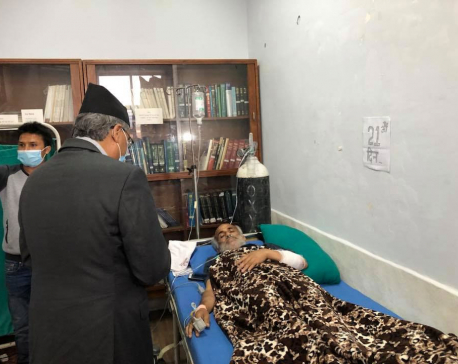
“You are not alone; millions are behind you,” Deuba to Dr KC
KATHMANDU, July 20: Former Prime Minister and Nepali Congress President Sher Bahadur Deuba has urged the government to immediately hold... Read More...
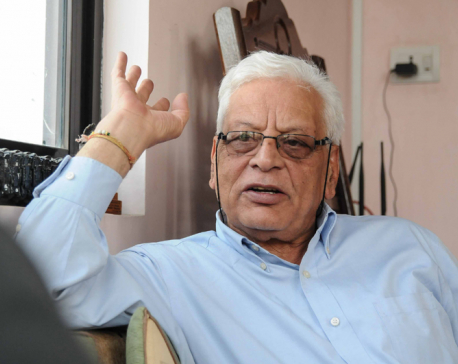
Even 744 are too many. Around 300 local units are viable in the long run
Shyam Krishna Bhurtel served as a member of Local Level Restructuring Commission and has worked as an expert in Nepal’s... Read More...
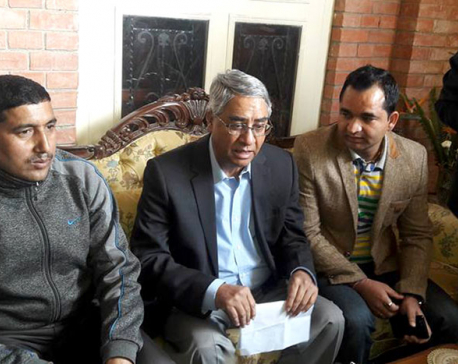
We are not with Lokman, we are with rule of law: Deuba
KATHMANDU, Oct 23: Nepali Congress President Sher Bahadur Deuba has said that he is in favor of the rule of... Read More...

Just In
- Over 200,000 devotees throng Maha Kumbha Mela at Barahakshetra
- Indians vote in the first phase of the world’s largest election as Modi seeks a third term
- Kushal Dixit selected for London Marathon
- Nepal faces Hong Kong today for ACC Emerging Teams Asia Cup
- 286 new industries registered in Nepal in first nine months of current FY, attracting Rs 165 billion investment
- UML's National Convention Representatives Council meeting today
- Gandaki Province CM assigns ministerial portfolios to Hari Bahadur Chuman and Deepak Manange
- 352 climbers obtain permits to ascend Mount Everest this season







_20220508065243.jpg)



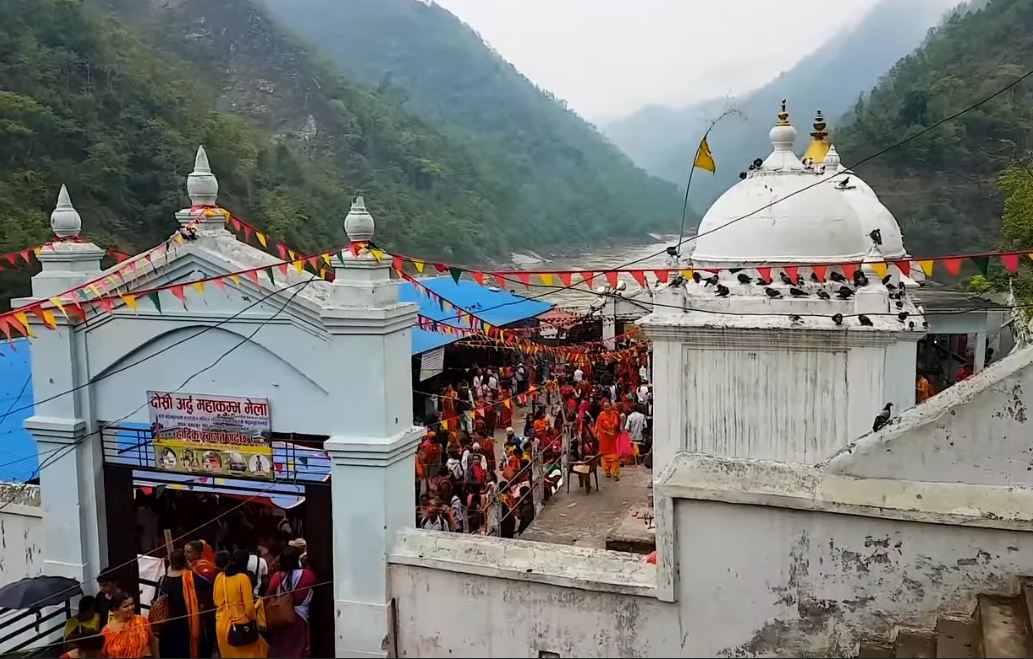
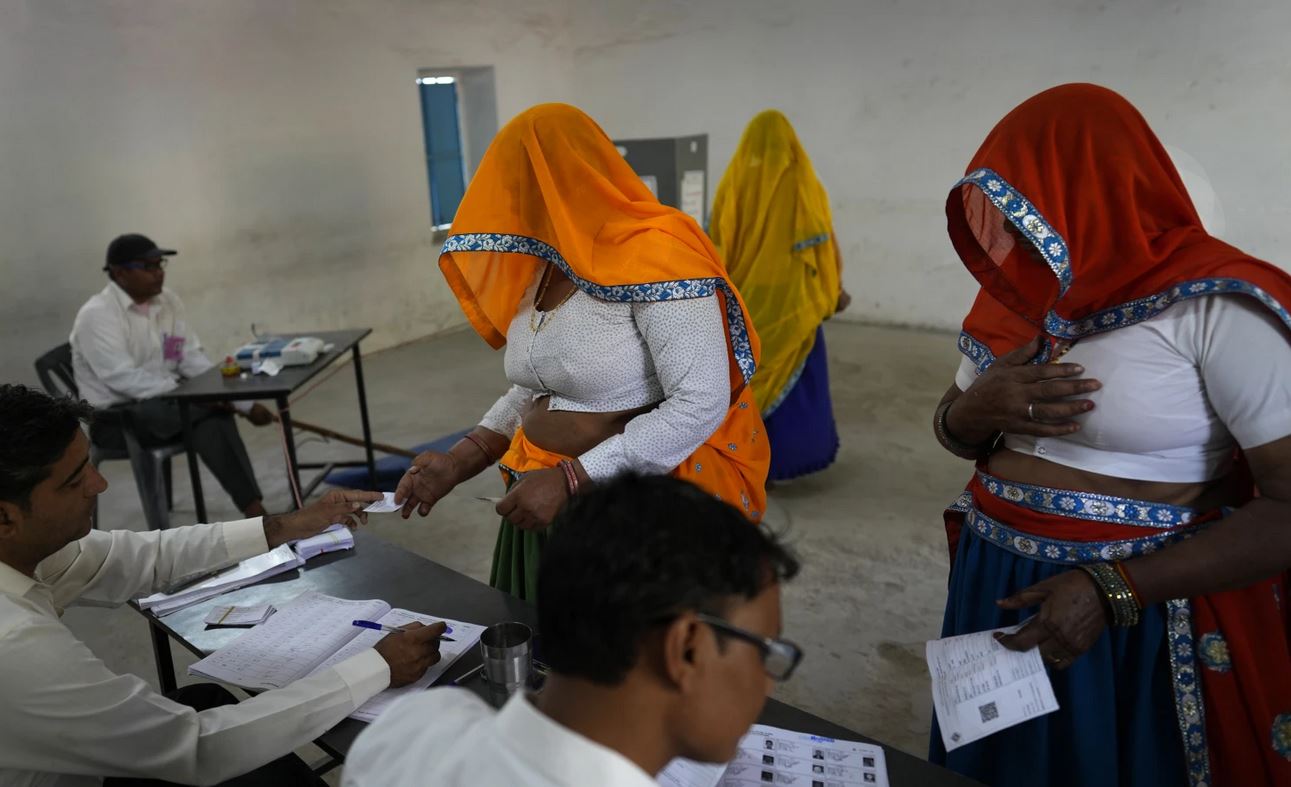






Leave A Comment